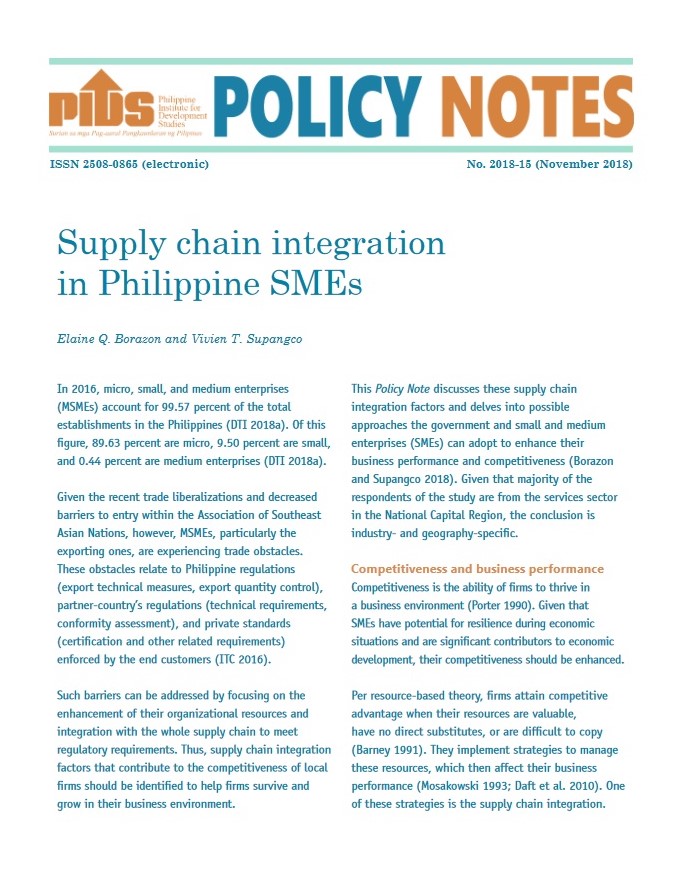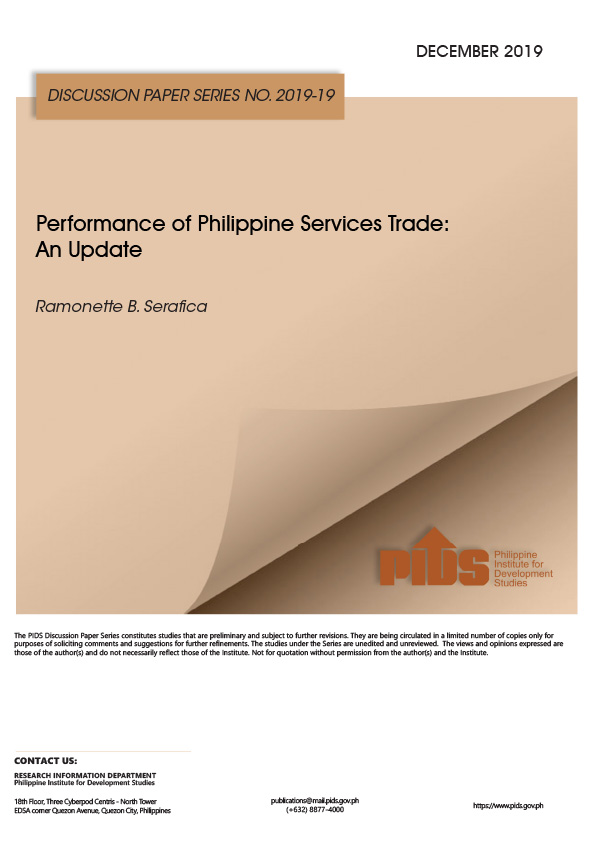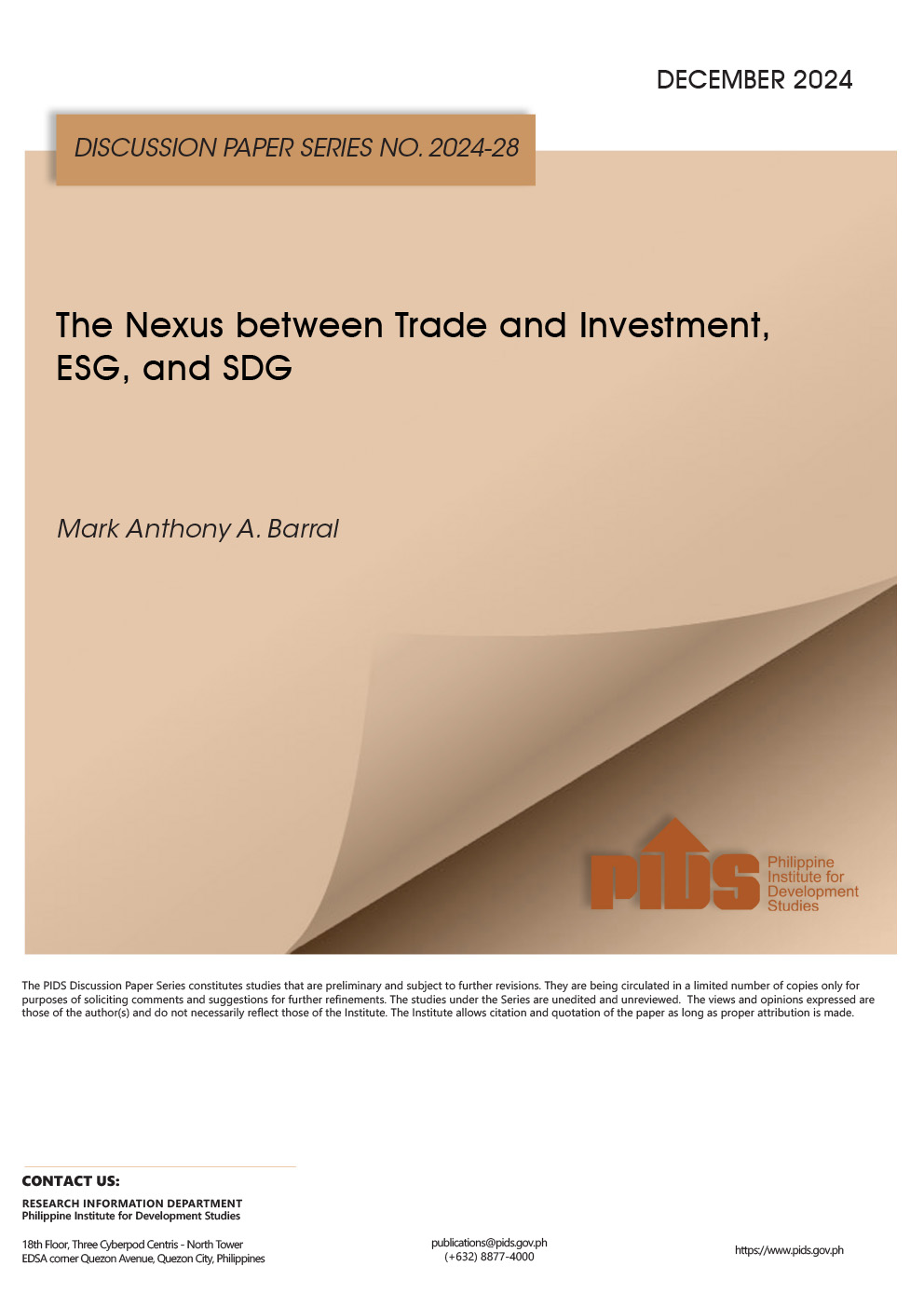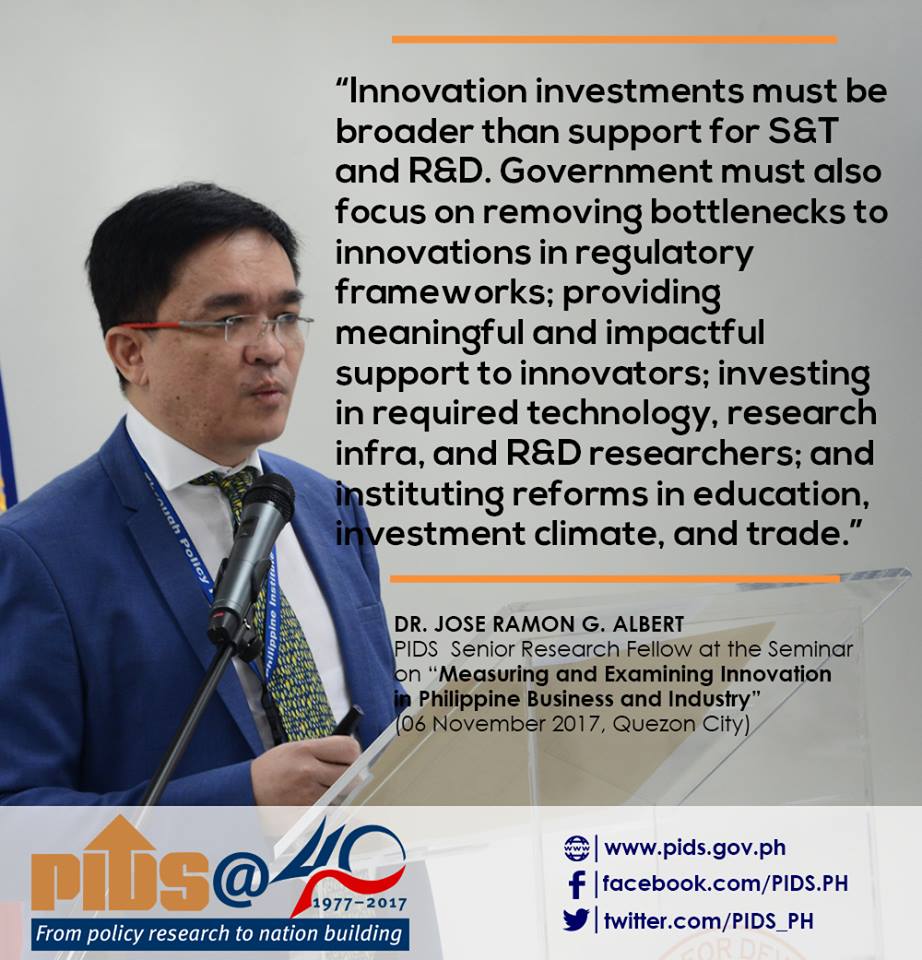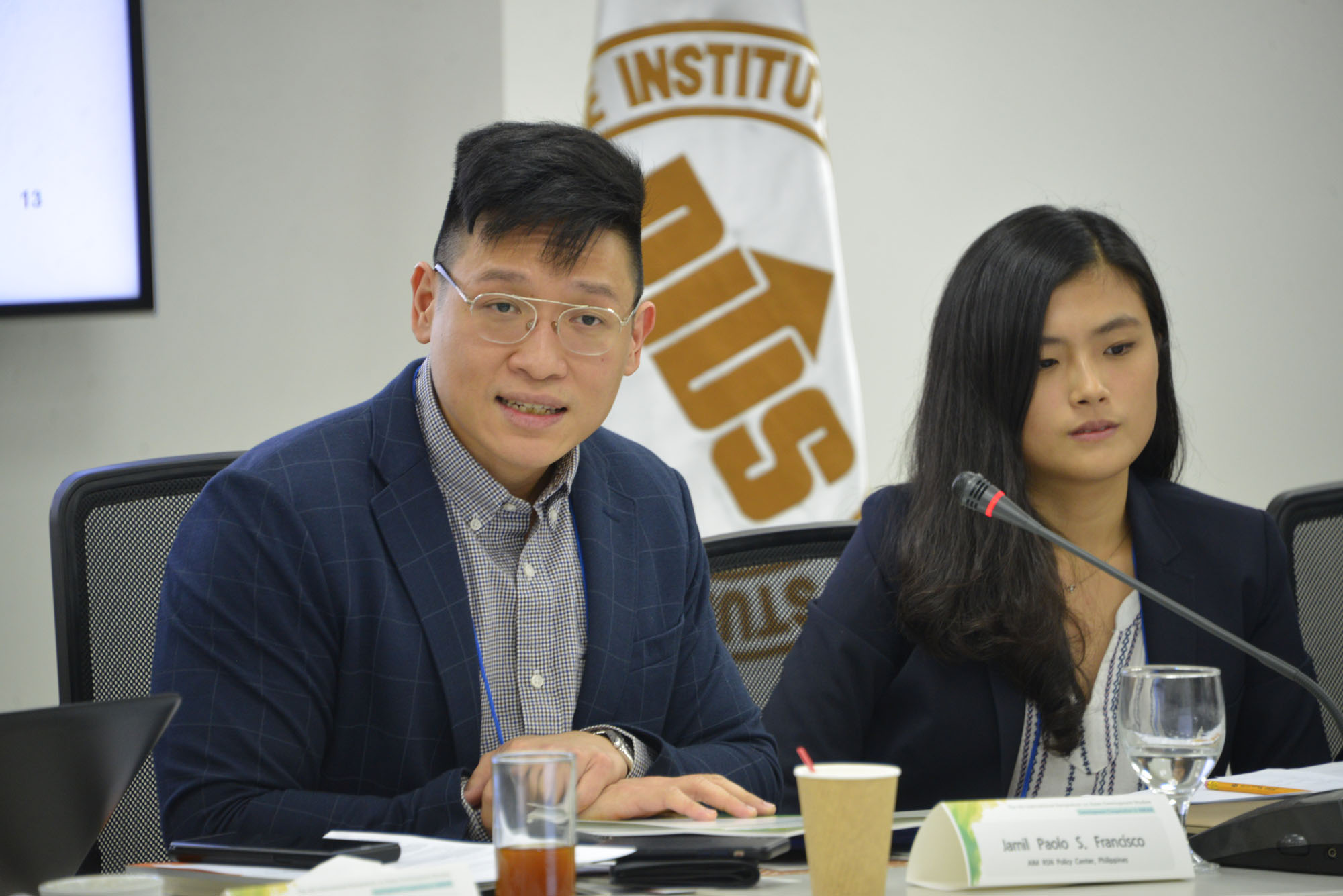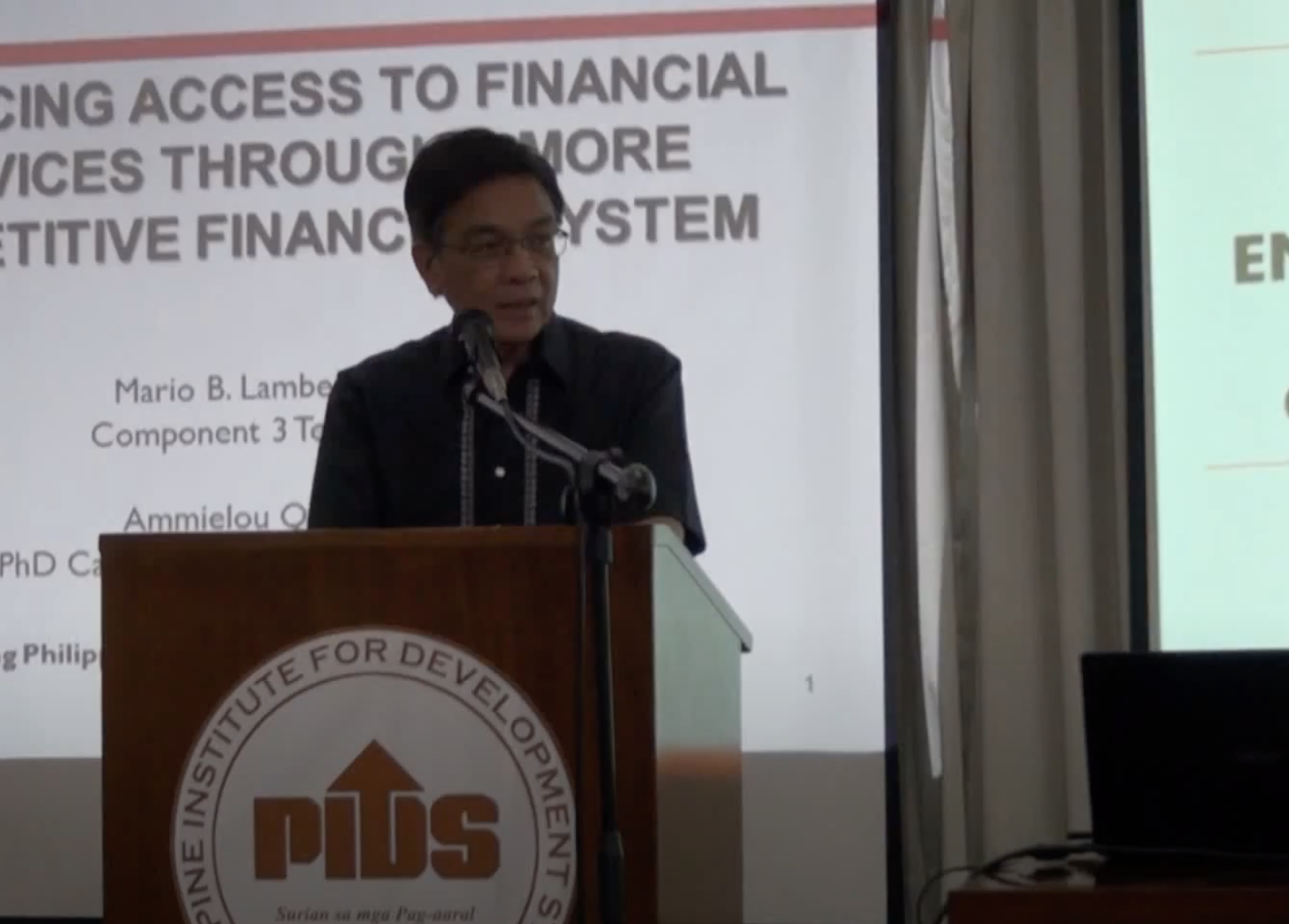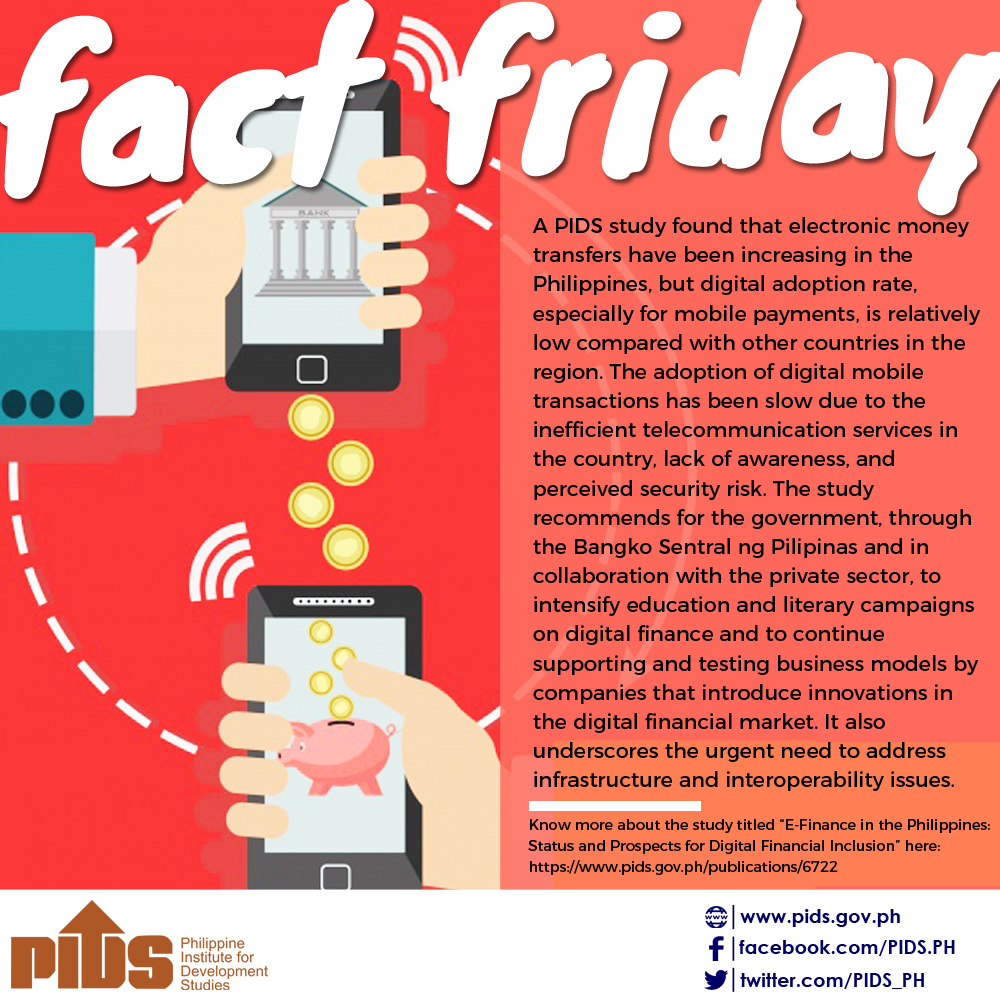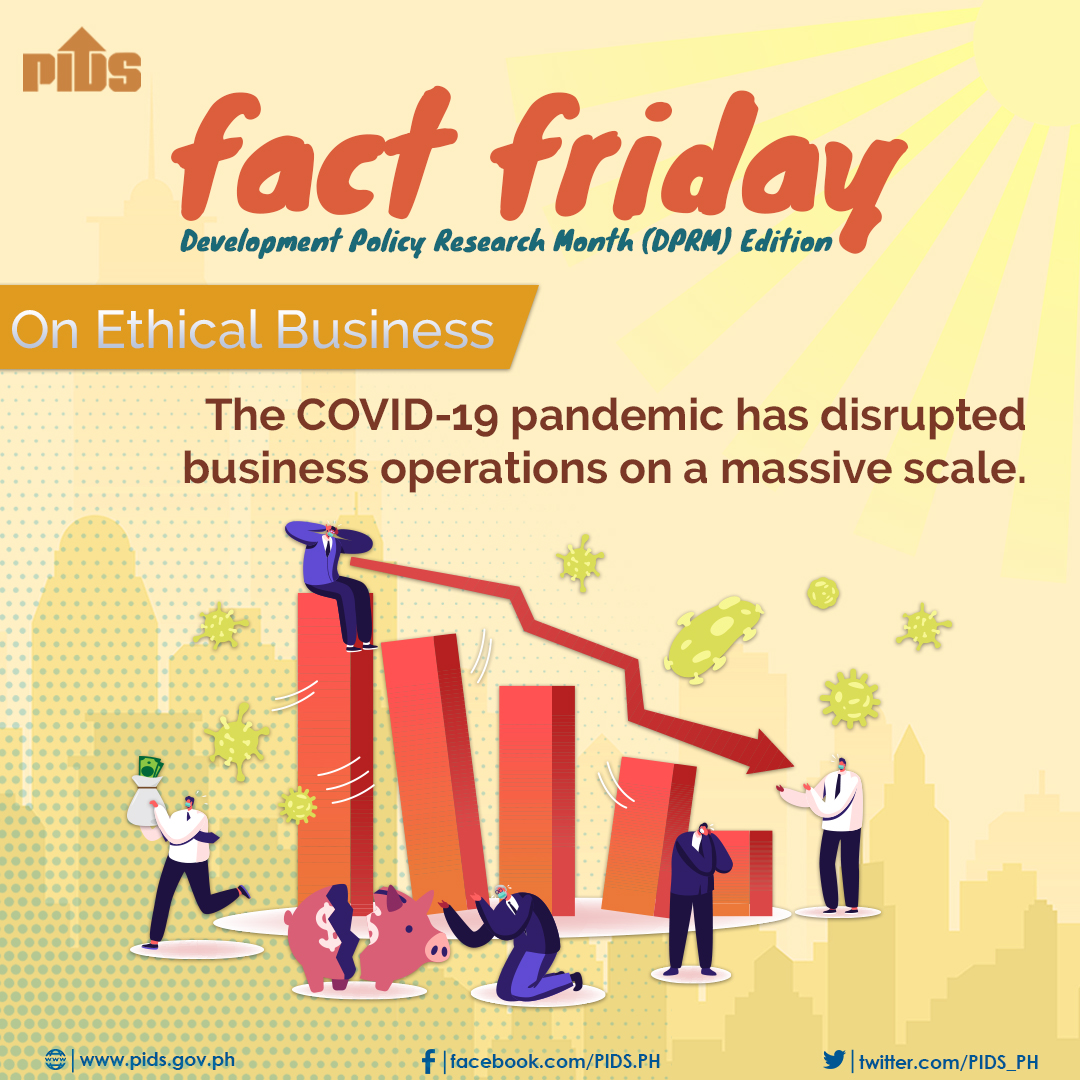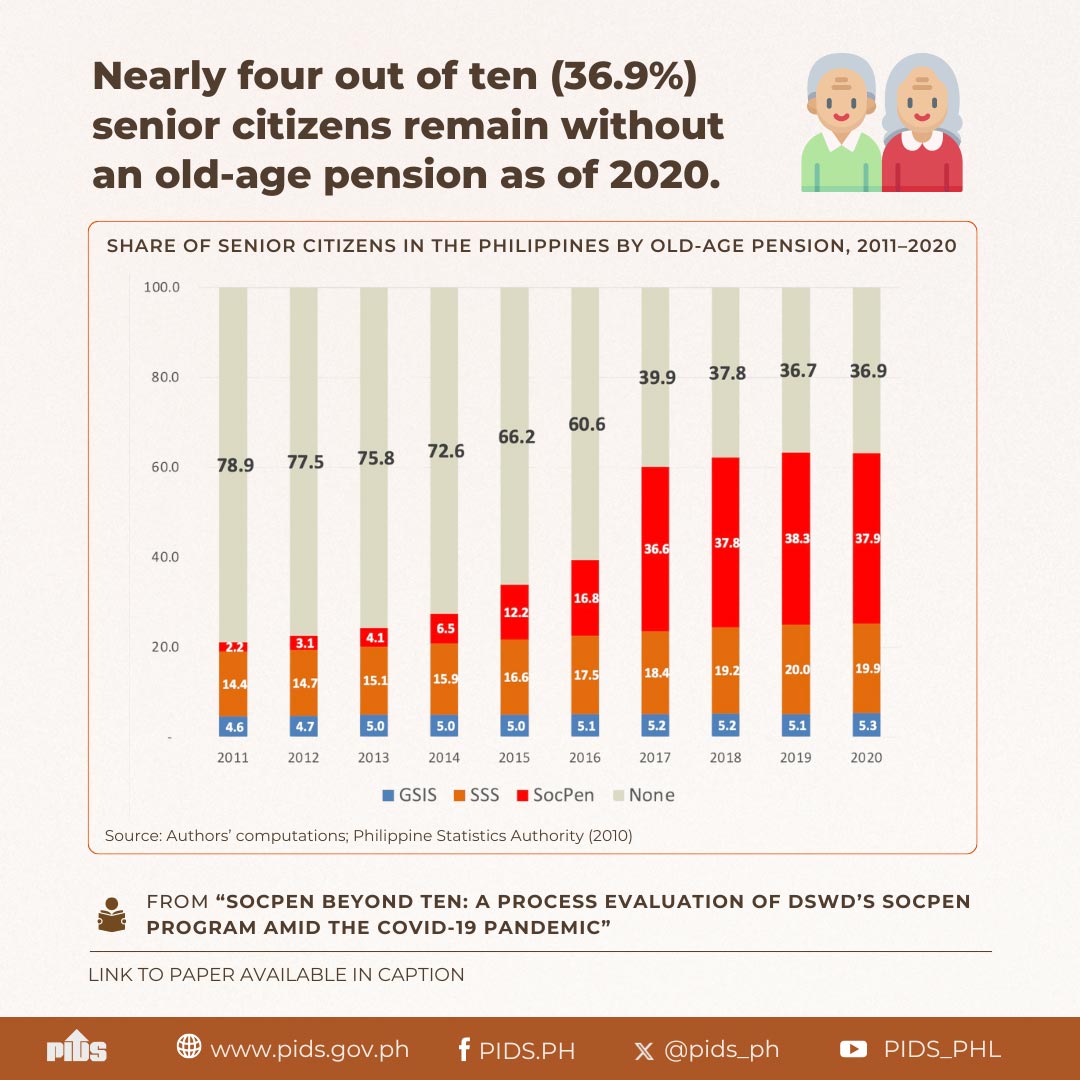
Adopting environment, social, and governance (ESG) policies could lead to positive corporate financial performance.
This is according to Ms. April Lynn C. Lee-Tan, first vice president for Corporate Strategy and chief investor relations officer at the COL Financial Group, Inc., during the second of the four-part webinar series of the 7th Annual Public Policy Conference (APPC), which featured the topic “Ethical Business”. The APPC is the culminating activity of the Development Policy Research Month organized by the Philippine Institute for Development Studies every September.
“In the past, governance had been more focused on the board composition to make sure that the policies were favorable to minority shareholders—which is what most of us are when we invest in the stock market…Today, there are many professionally managed funds, especially foreign funds that are increasingly investing in companies that adopt ESG practices in their day-to-day operations,” she said.
Tan mentioned that a lot of micro, small, and medium enterprises find it hard to be profitable to adopt ESG practices because it entails “having costly operations” and paying higher taxes.
Notwithstanding these contentions, Tan still believes that adopting a stakeholder model is important in building a business.
“[E]ven if you are a small business but want to last beyond the next generation—hundreds of years even, which I think is the goal of every business owner—you cannot only focus on profits in the short term. Sure, you will earn a lot of profits in the short term, but you will have a difficult time growing and creating scale over the long term,” she pointed out.
She also noted that businesses that are focused on profits but do not pay taxes have less sources to access capital.
“A lot of businesses are very capital intensive. If [they] are able to access the stock market and [avail of] cheap funding, then [they] have an automatic advantage,” Tan explained.
Moreover, Tan stressed the importance of risk management for businesses adopting ESG policies.
“From a risk management perspective, the government will likely come out with policies that talk about environmental protection and social protection in the future. If you are already doing the right thing, then your operations and your profits will be less vulnerable to these regulations,” she said.
Tan also said that “investors do not like the idea that after having done their corporate projections and all, a new government regulation would suddenly negatively affect [their portfolio’s] earnings and stock prices.”
In conclusion, Tan said “there is [a] greater appreciation of ESG in the market, and that one of the greatest benefits of being aligned with ESG is the low cost of funding that companies can take advantage of.”
Watch the video of this seminar at https://www.facebook.com/PIDS.PH/videos/4301227133280155 and https://www.youtube.com/watch?v=ZtsoYID10YM&t=1017s.
For more videos of PIDS events, go to https://www.pids.gov.ph/videos.
This is according to Ms. April Lynn C. Lee-Tan, first vice president for Corporate Strategy and chief investor relations officer at the COL Financial Group, Inc., during the second of the four-part webinar series of the 7th Annual Public Policy Conference (APPC), which featured the topic “Ethical Business”. The APPC is the culminating activity of the Development Policy Research Month organized by the Philippine Institute for Development Studies every September.
“In the past, governance had been more focused on the board composition to make sure that the policies were favorable to minority shareholders—which is what most of us are when we invest in the stock market…Today, there are many professionally managed funds, especially foreign funds that are increasingly investing in companies that adopt ESG practices in their day-to-day operations,” she said.
Tan mentioned that a lot of micro, small, and medium enterprises find it hard to be profitable to adopt ESG practices because it entails “having costly operations” and paying higher taxes.
Notwithstanding these contentions, Tan still believes that adopting a stakeholder model is important in building a business.
“[E]ven if you are a small business but want to last beyond the next generation—hundreds of years even, which I think is the goal of every business owner—you cannot only focus on profits in the short term. Sure, you will earn a lot of profits in the short term, but you will have a difficult time growing and creating scale over the long term,” she pointed out.
She also noted that businesses that are focused on profits but do not pay taxes have less sources to access capital.
“A lot of businesses are very capital intensive. If [they] are able to access the stock market and [avail of] cheap funding, then [they] have an automatic advantage,” Tan explained.
Moreover, Tan stressed the importance of risk management for businesses adopting ESG policies.
“From a risk management perspective, the government will likely come out with policies that talk about environmental protection and social protection in the future. If you are already doing the right thing, then your operations and your profits will be less vulnerable to these regulations,” she said.
Tan also said that “investors do not like the idea that after having done their corporate projections and all, a new government regulation would suddenly negatively affect [their portfolio’s] earnings and stock prices.”
In conclusion, Tan said “there is [a] greater appreciation of ESG in the market, and that one of the greatest benefits of being aligned with ESG is the low cost of funding that companies can take advantage of.”
Watch the video of this seminar at https://www.facebook.com/PIDS.PH/videos/4301227133280155 and https://www.youtube.com/watch?v=ZtsoYID10YM&t=1017s.
For more videos of PIDS events, go to https://www.pids.gov.ph/videos.

